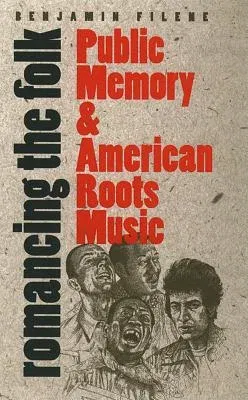Benjamin Filene
(Author)Romancing the Folk: Public Memory and American Roots MusicPaperback, 26 June 2000

Qty
1
Turbo
Ships in 2 - 3 days
In Stock
Free Delivery
Cash on Delivery
15 Days
Free Returns
Secure Checkout
Part of Series
Cultural Studies of the United States
Part of Series
Cultural Studies of the United States (Paperback)
Print Length
344 pages
Language
English
Publisher
University of North Carolina Press
Date Published
26 Jun 2000
ISBN-10
080784862X
ISBN-13
9780807848623
Description
Product Details
Author:
Book Format:
Paperback
Country of Origin:
US
Date Published:
26 June 2000
Dimensions:
23.52 x
14.68 x
2.21 cm
ISBN-10:
080784862X
ISBN-13:
9780807848623
Language:
English
Location:
Chapel Hill
Pages:
344
Publisher:
Weight:
458.13 gm

